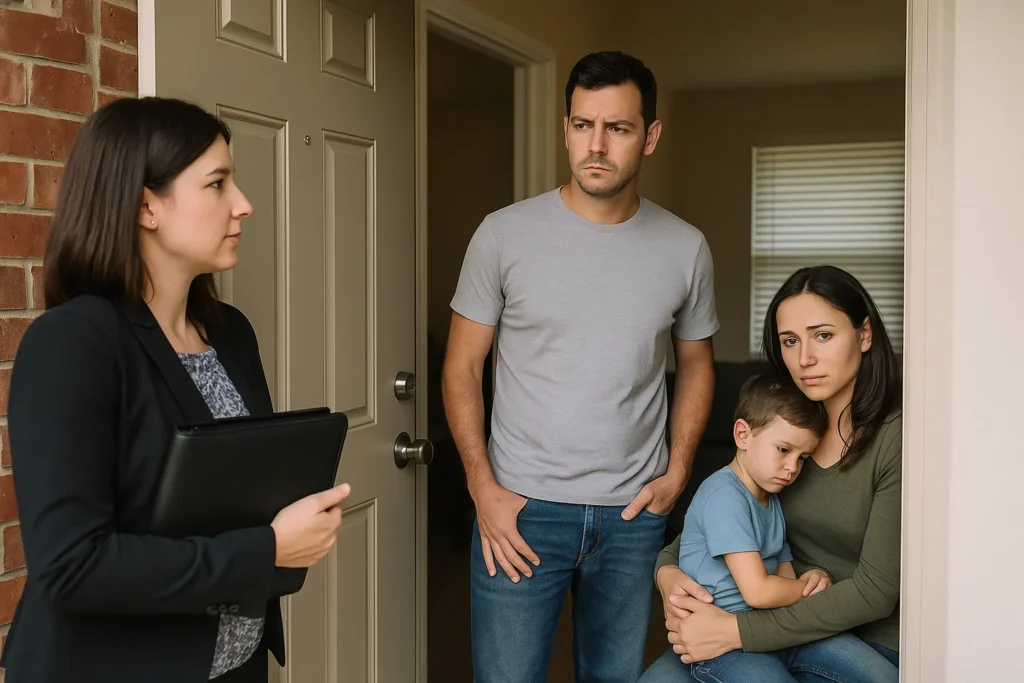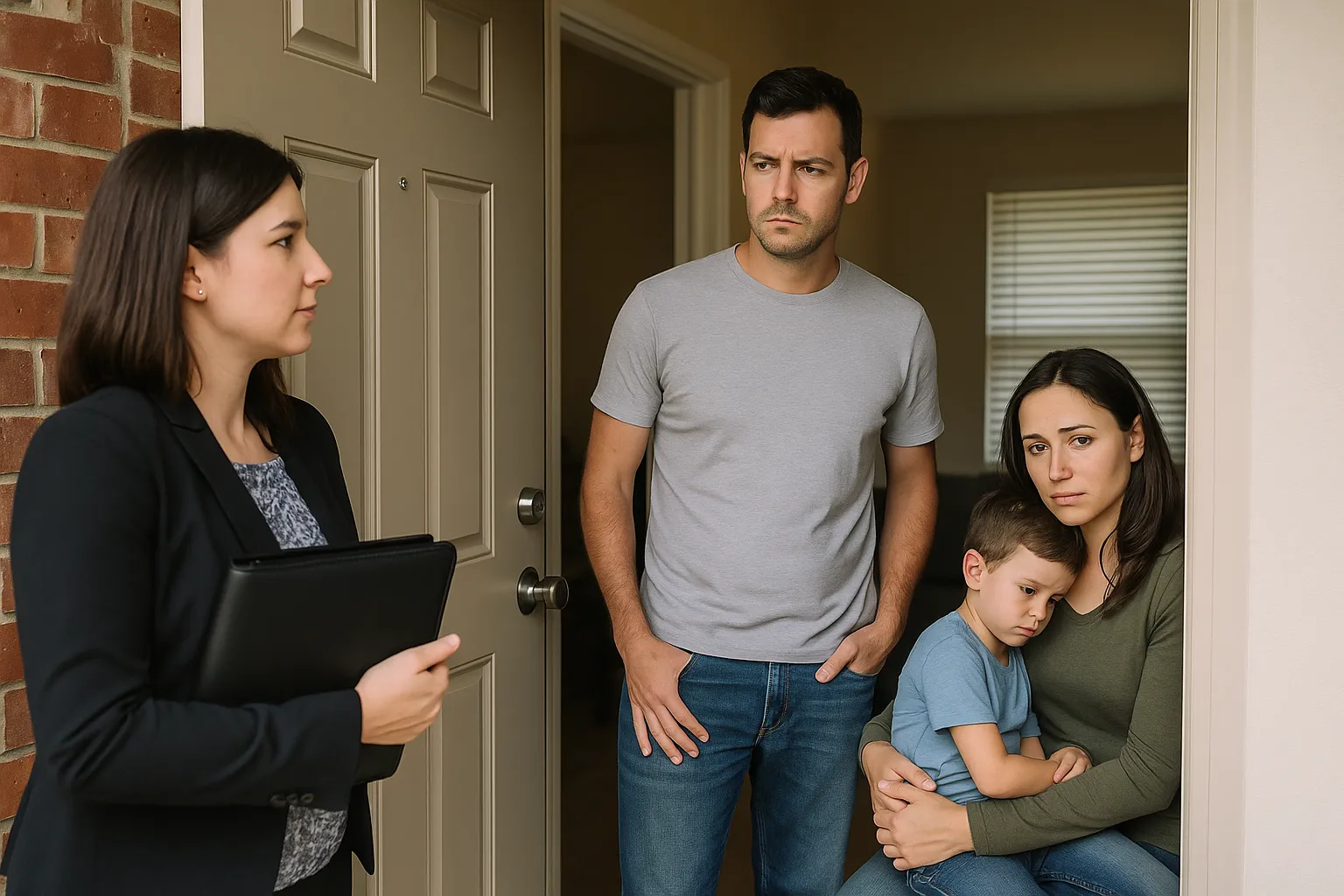
CPS involvement can catch any parent off guard. One report, even without proof, can lead to unannounced visits, interviews, and the possibility of losing temporary custody. A Guide to CPS Interactions helps Texas parents understand the process, their rights, and how to respond without making the situation worse. This isn’t just about legal steps, it’s about protecting your home, your children, and your peace of mind when the system comes knocking.
What Triggers a CPS Visit?
CPS responds to reports of child abuse or neglect. Anyone can file a report: neighbors, teachers, relatives, even strangers. Mandated reporters like doctors and school staff must report suspected abuse by law.
Common triggers include:
- Unexplained injuries or bruises
- Frequent absences from school
- Unsafe living conditions
- Drug or alcohol use around children
- Verbal threats or emotional outbursts witnessed by others
Once CPS receives a report, they must assess the situation. Even if the claim seems false or exaggerated, the agency will still investigate.
Understanding the Investigation Process
CPS begins with an intake review. If the report meets their criteria, they open a formal case. A caseworker may visit your home unannounced. Their job is to determine if your child is safe.
They might:
- Ask to speak with your child alone
- Inspect your home
- Interview you, your partner, and other family members
- Reach out to teachers, doctors, or neighbors
This initial investigation usually lasts up to 30 days. During that time, CPS gathers information to decide if intervention is needed.
Know Your Rights During CPS Visits
You don’t have to give up your rights during a CPS investigation. Many parents panic and say too much. Some feel pressured to comply with every request. Understanding your rights keeps the process fair.
You Have the Right to Remain Silent
You do not have to answer every question. If you feel unsure, say you want legal advice before continuing. Anything you say may be used in court later.
You Can Say No to a Home Search
Unless CPS shows a court order, you can refuse entry into your home. If they bring law enforcement with them, ask to see the warrant. Be polite, but firm.
You Can Request an Attorney
You have the right to legal representation. This becomes critical if CPS threatens to remove your child or files a lawsuit. Ask for a lawyer immediately if you feel pressured or accused.
You Can Ask for Written Records
Request copies of any reports or documentation CPS creates about your case. These records can help you understand their concerns and prepare your response.

How to Protect Your Children During an Investigation
CPS wants to know your children are safe. Parents often feel accused even when they’ve done nothing wrong. These actions show your commitment to your child’s well-being:
Keep Your Home Clean and Organized
Caseworkers take note of living conditions. A tidy, safe home tells CPS you take your parenting role seriously.
Maintain Stable Routines
CPS looks at school attendance, bedtime routines, and regular meals. Keep your family on track. Show consistency and structure.
Avoid Heated Arguments
Disputes between partners or with children during a visit can raise concerns. Stay calm and cooperative. Keep your tone steady.
Document All Interactions
Write down who visits, what they ask, and how you respond. Keep all letters or forms CPS sends you. This creates a paper trail if you need to defend your actions later.
When CPS Removes a Child
In serious cases, CPS may remove a child. This often shocks the parent. But removal doesn’t always mean permanent loss. The agency may place your child with relatives or in foster care while they continue their investigation.
You will receive a court date soon after removal. Use this time to gather documents, secure an attorney, and prepare to fight for your child’s return.
Cooperating Without Giving Up Your Rights
CPS may offer voluntary services like parenting classes or counseling. Participating shows your willingness to work with the agency. However, these services can also become part of a long-term case plan. Read everything carefully before signing any paperwork. Ask questions. Take your time.
Common Missteps to Avoid
Small mistakes can lead to bigger problems during a CPS case. Watch out for these traps:
Ignoring CPS Visits
If you dodge phone calls or refuse meetings, CPS may interpret that as noncooperation. Stay available and respond respectfully.

Posting on Social Media
Avoid venting online about your case. CPS may use your posts as evidence. Keep all communication about your situation private and off the internet.
Lying or Withholding Information
If you lie, CPS will likely find out. Honesty, even when difficult, is more effective than deception.
Letting Emotions Take Over
Yelling, crying, or accusing the caseworker can work against you. Take deep breaths. Stay calm and focused on your child’s well-being.
What Happens After the Investigation?
Once the investigation ends, CPS will close the case or move to the next step. You may receive one of the following outcomes:
- Ruled out: No abuse or neglect found. Case closed.
- Unable to determine: Not enough evidence to prove or disprove abuse.
- Reason to believe: CPS found signs of abuse or neglect. Case may proceed to court.
- Services recommended: CPS may recommend counseling, parenting classes, or other support without court involvement.
If CPS files a legal case, you’ll attend court hearings and follow a service plan. Complete every step quickly and document your progress.
How to Prepare for Court
Court hearings can feel overwhelming. But with preparation, you can present your side clearly.
Bring All Documents
Bring case reports, medical records, school reports, or any communication with CPS.
Dress and Act Professionally
Wear clean, modest clothes. Speak respectfully. Judges watch behavior as much as they listen to words.
Show Progress
If CPS asked you to attend classes, finish them and bring proof. Show that you’ve made changes and care about your child’s future.
Final Thoughts
CPS involvement doesn’t automatically mean you’re a bad parent. Many families face investigations due to misunderstandings, false reports, or personal conflicts. How you respond will shape what happens next. Know your rights. Stay calm. Take steps to protect your children and your home.

Other Related Articles:
- Ultimate Guide to Surviving a CPS Investigation
- What CPS looks for when investigating your family
- What are the steps of a CPS investigation?
- What is the threshold Test in a CPS investigation?
- What are the possible CPS investigation outcomes?
- Will CPS speak to your child during an investigation in Texas?
- What can a CPS investigation into your family mean now and in the future?
- A CPS Investigation: An in-depth examination
- Maintaining a positive outlook during a CPS investigation in Texas
- How you can work effectively with CPS during an investigation into your family
Frequently Asked Questions
CPS cannot enter your home without your consent or a court order, except in emergency situations where a child is in immediate danger.
No, a mother cannot unilaterally take a child from the father in Texas. Both parents have equal rights, and any changes to custody arrangements should be done through the legal process or with the court’s approval.
Child custody in Texas is determined based on the child’s best interests. The court considers factors such as the child’s emotional and physical needs, parental abilities, and any history of domestic violence or abuse when making custody decisions.
In Texas, a child who is 12 years or older may have the opportunity to express their custody preferences to the court. The judge will consider the child’s wishes, but the final decision is based on the child’s best interests.




